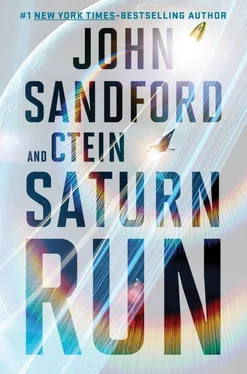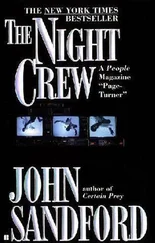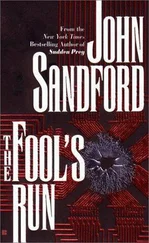LaFarge, the comm officer, said, “That would double our I/O rate, but we still wouldn’t manage to get a significant fraction of it back. We might get ten percent of it, instead of eight.”
“Yeah, but who knows what might be in the additional two percent?” Martinez said. “Be worth doing, in my estimation.”
“Then we’ll do it,” Fang-Castro said. “Major Barnes—expand on the kill switch. I don’t quite grasp where you’re going with that.”
Barnes nodded. “If the Chinese managed to take the ship, they could probably figure out a way to get a package or several packages, containing a reader and a memory module, back to Earth, no matter what happened to our ships. Put them on a simple rocket, launch it in the proper orbit. Maybe it doesn’t arrive for ten years, but so what? They’d still get it a hundred and thirty years before we did.”
“Maybe we ought to consider that,” Crow said. “We’ve got eight copies—”
Martinez said, “We don’t have time. We’d have to fab a rocket, work out the orbits… they’re going to be here in less than a day. If I had a couple of weeks, maybe. But this wouldn’t be a simple project.”
Barnes said, “To finish my thought… if we can’t launch our own rocket—and even if we did, I suspect the Chinese would see it, and could probably intercept it, either here or at the earth, and either capture or destroy it—then we should protect the memory capsules and the readers from a takeover. We should fab a box, a safe, out of materials on hand, load it with magnesium from our Mayday flares, and build in a coded trigger. Then, we give triggers to Admiral Fang-Castro and a couple other people. If the Chinese take the ship, we tell them what we’ve done, and tell them if they interfere with the box, we’ll blow it. We’ll already have a tech edge on them, from the I/O material. If we do this, it’ll at least give the top people on Earth a chance to work out a compromise.”
Fang-Castro scratched her nose, then said, “Mr. Crow.”
Crow smiled. “Major Barnes has nailed it. This would give us an ultimate fallback.”
Barnes: “Keep in mind, we wouldn’t even have to use the box if we decide ten hours from now that we don’t need it. But if we decide a day from now that we desperately need one, but didn’t have it, it might be too late to fab one. We could fab it now and decide later if we need it.”
Fang-Castro looked at Martinez and said, “Build it.”
“Yes, ma’am. Though…”
“What?”
“Ah, I just hate the thought of blowing all that tech. We’ve got that science stuff on the I/O, but building the tech from first principles is gonna be a nightmare. It’s like this: suppose I went back to the 1700s and cornered Ben Franklin and handed him the plans for a laser, and asked him how quickly he could whip one up for me. Even if he fully understood the concepts, he simply wouldn’t have the tools. He wouldn’t even have the tools to make the tools. Hell, he’d probably electrocute himself trying—he just got lucky with that kite and lightning stunt. That’s where we’re at. We blow that tech… well, we might get some of it in less than a hundred and fifty years, but we won’t get all of it. I bet we wouldn’t even get most of it.”
Crow said, “Joe, it’s not really about what mankind would lose: it’s about the competition between us and the Chinese.”
Martinez nodded. “I know that. But I don’t want mankind to lose it. I don’t want to lose it. I won’t be alive in a hundred and fifty years. I want to see what’s in the alien package. Like, now. Before I die.”
____
Fiorella and Sandy put together a quick vid of Fang-Castro graciously agreeing that the Americans would do everything possible to rescue the Chinese. Fiorella’s carefully crafted commentary left no doubt that American science, technology, and humanitarianism—the Americans were risking their lives—were key to rescuing the cruder Chinese mission, to allow Cui to get back with her handsome husband and pretty children. She didn’t say that, but everybody watching the vid understood it.
“I think you just made Ultra,” Sandy told her, when the vid had been dispatched to Earth. “Santeros will owe you big-time, and as big a bitch as she can be, nobody ever claimed that she didn’t take care of her own.”
“I’m not one of her own,” Fiorella protested.
“Not exactly, but she’ll feel the debt. Not a bad place to be,” Sandy said.
Fiorella thought about that, then changed the subject. “You’re done with your meds now, right?”
“Yup.”
“How are you feeling?”
“Still hurts, but I’m functional. What happens is… Do you want to hear this?”
“Yes.”
“What happens is, your brain gets stuck in a feedback loop. Why did this happen? Is there something wrong with me that it keeps happening—first in the Tri-Border, and now here? What could I have done? What could I have said to her that I didn’t? You get these flashbacks and every time you flash back, the loop intensifies. The meds break the loop and smooth out the thought processes, and eventually time starts to erode the power of the flashbacks. Somewhat, anyway. Still get them, but less frequently, and with less force. So. That’s where I’m at.”
“I asked because… Fang-Castro says you’re back on military status. Which means, if there were a conflict with the Chinese…”
“You’re worried that I’m fragile.”
“I worry about you. ”
“I’m good. And sad. Both at once. But: functional. My brain’s working again.”
“We’re sure that’s a good thing?”
Sandy gave her his toothy smile: “You gotta work with what you got, sweetheart. I just try to keep up….”
The alien tech was kept in one of the rooms that earlier had been used as a temporary jail. Because it had been specifically designed for that purpose, it had been lined with thin sheet steel on all six sides, which effectively made it a Faraday cage, shielding the room from most electromagnetic radiation.
With a heavy, nearly unbreakable lock, it would also resist physical interference, for at least some period of time. All by itself, it might serve.
“The only problem,” Martinez said, as he, Sandy, and Crow stood in the room, looking at the carefully packaged alien tech where it sat on newly fabbed plastic shelves, “is that it’s too big. Any amount of explosive big enough to guarantee that the tech would be destroyed might also knock a hole in the ship.”
“Not good,” Crow said.
“We need a small, tough isolation box, inside the hard room, connected to a little tiny receiver buried in the wall outside the steel, where the Chinese can’t see it. If we keep the fire in the box, and put the box on a heat-resistant stand of some kind, that’ll restrict the fire until we can get inside the room and kill it. And we probably ought to have a camera inside the room, in case they figure another way in.”
“Box won’t be that small,” Crow said. They all looked at the readers, which were the size of a standard office printer.
“Why not just fab a box for the memory modules?” Sandy asked. “Kill those, and the readers are useless, anyway. I mean, maybe we could take four readers, and give four to the Chinese, and we could all race to see how they worked. We could even call it a sign of goodwill.”
Crow said, “You’ve been thinking about this.”
“My history in the Tri-Border: trust no one, everything breaks, nothing works as advertised, and if anything can go wrong, it will.”
“And you’re so young.”
“But getting older by the minute,” Sandy said. “I can fab the steel box, if Joe can work out the kill trigger switches, which is going to be the hard part. I’ll need to measure the modules. Actually, I can scale them with one of my Reds.”
Читать дальше








